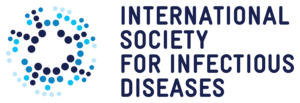What happened at the 18th ICID’s 2018 Hackathon in Buenos Aires

Current situation
Today, 2.1 billion people lack access to safely managed drinking water services and 4.5 billion people lack safely managed sanitation services. Unsafe hygiene practices are widespread, compounding the effects on people’s health. The impact on child mortality rates is devastating with more than 340,000 children under five dying annually from diarrhoeal diseases due to poor sanitation, poor hygiene, or unsafe drinking water – almost 1,000 children per day.
What is a hackathon and how can it help?
The hackathon format originated in IT. It combines the concept of hacking (programing quickly and roughly) with that of a marathon (a long-lasting or difficult task or activity) and describes a short period of time spent by people working intensively in teams, starting from scratch, on the building, creating and delivery of working prototype software. The hackathon format has now been adopted by other fields who use it to bring diverse groups of people together for short, fixed periods of time to solve a wide variety of problems and challenges in environments that are conducive to sparking and evolving innovative ideas into solutions.
At the 18th International Congress on Infectious Diseases in Buenos Aires
On February 27th, 2018, 37 motivated individuals came together, each representing a different educational and professional background, determined to solve challenges associated with water, sanitation, and hygiene (WASH). Participants represented 15 countries from 5 continents making the 18th ICID’s Hackathon a truly international event.
At the start participants had the opportunity to pitch a problem they would like to solve and out this process 8 teams formed, all comprising a different mix of knowledge, experience, perspectives and skills that would hopefully enable the teams to develop new solutions to the problems they wanted to solve. Supporting them were mentors with experience in healthcare, business entrepreneurship and data science who all volunteered their time.
At the end of the 3 day event, teams presented their solutions to a panel of 4 judges who assessed the ideas based on their innovativeness, novelty, scalability and overall feasibility. All teams were in the running for a variety of awards intended to enable teams to continue to develop their solutions after the end of the event. These included a $1,500 USD Elsevier Foundation Award which was won by Mosquito Hunters who proposed the roll-out of a mobile application to coincide with Argentina’s Mosquito Week that would allow children to identify and document mosquito breeding sites before they had a chance to produce disease spreading vectors.
The 18th ICID’s Hackathon was organized by ISID, the Masschusetts Institution of Technology (MIT) Hacking Medicine Group, healthsites.io and Emprear.
Track the progress of solutions developed at the 18th ICID’s Hackathon



